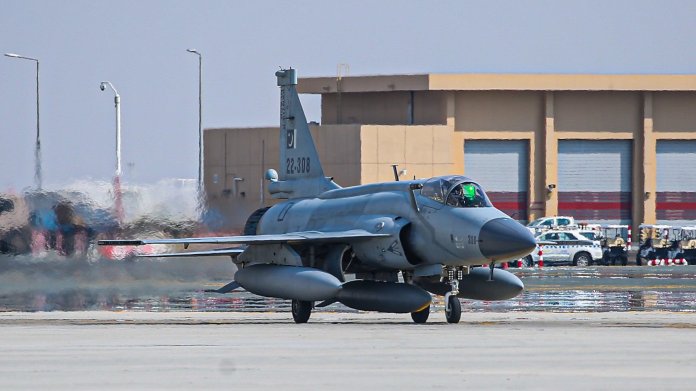In the ever-evolving landscape of geopolitical tensions and defense strategies, Turkey finds itself at a crossroads in its pursuit of advanced fighter jets. Facing denials of F-16s from the United States and Eurofighter Typhoons from Germany, Turkey is now rumored to be considering the China-Pakistan co-developed JF-17 Block 3 as a potential alternative. This shift coincides with recent fighter jet acquisitions by its regional rival, Greece, further intensifying the complex dynamics in the Eastern Mediterranean.
Turkey's quest for F-16s from the United States and Eurofighter Typhoons from Germany has encountered diplomatic hurdles, contributing to the nation's exploration of alternative options. Germany's reluctance to fulfill Turkey's request and the United States' denial of F-16s have left Ankara seeking other partners to meet its defense needs.
On the other side of the Aegean, Greece has been actively fortifying its air force capabilities. Recent acquisitions of F-16V Viper fighter jets from the United States and Dassault Rafale jets from France underscore Greece's commitment to modernizing its air fleet. The addition of these advanced aircraft enhances Greece's military posture and introduces cutting-edge technology to its arsenal.
Turkey, in response to Greece's strategic advancements, is exploring alternatives beyond traditional Western alliances. The potential consideration of the JF-17 Block 3 represents a departure from the established norms, signaling a willingness to diversify defense partnerships and explore options beyond the denied acquisitions.
The JF-17 Block 3, a collaborative effort between China and Pakistan, presents a cost-effective solution for Turkey, equipped with advanced avionics and weaponry. While not directly comparable to Western counterparts, the Block 3 variant is gaining attention for its capabilities, particularly in the context of Turkey's denied acquisitions and Greece's bolstered air force.
Turkey's potential shift towards the JF-17 Block 3 adds a layer of complexity to the geopolitical dynamics in the Eastern Mediterranean. As Turkey seeks alternative defense partners, the move may impact regional power balances and influence diplomatic relationships.
In addition to the JF-17 Block 3, Turkey has other noteworthy alternatives on its radar. The Russian-made Su-57 and Su-35, along with the Chinese J-10C, emerge as potential choices for Ankara. This consideration adds an intriguing dimension to the geopolitical landscape, as operating Russian or Chinese jets would mark a departure for a NATO member. It is worth noting that Turkey already operates the Russian S-400 Air Defense System, a move that led to its expulsion from the F-35 program.
